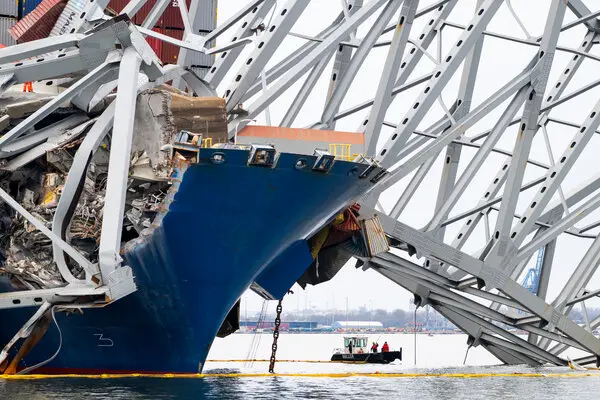Insurance Losses in the Wake of the Baltimore Bridge Collapse

Photo Credit: The New York Times
On March 26, 2024, after being struck by an off-course container ship, the Francis Scott Key Bridge that spans the Patapsco River in Baltimore, Maryland, collapsed. The accident killed six people who were fixing potholes on the bridge, and two other workers were rescued from the water.
The cost to rebuild the bridge is estimated to be more than $100 million and as high as $600 million, according to local transportation officials and economic analysts. And closing the port for even just one month could cost the state of Maryland $28 million. It prevents people from getting to and from work and will impact many businesses. The economic impact and the day-to-day impact on people’s lives will sting the city for years.
It will also take a heavy toll on global commerce. The U.S. may lose out on up to $15 million due to the closure of the port. In 2023 alone, over $80 billion worth of cargo passed through Baltimore. We may experience a shock to global supply chains.
As for insurance costs, we will see record-breaking numbers.
Analysts suggest that $4 billion may be the total cost of insurance claims filed due to the bridge collapse. This is a record high insurance cost for shipping-related disasters, according to Reuters.
Insurers are busy assessing the losses, which impact numerous product lines, such as property, cargo, marine, liability, trade credit, and contingent business interruption. Ship liability insurance is the type of insurance that covers environmental damage to the marine area as well as injury.
A $4 billion cost would top that of the 2012 Costa Concordia luxury cruise liner disaster, the cost of which grew close to $2 billion.
Wrongful death claims alone are likely to cost insurers between $350 million and $700 million.
It’s estimated that about 80 different reinsurers will be involved, which means that while the costs are extremely high, they won’t be nearly as hefty for each individual insurance provider. However, this accident may push up the prices of marine insurance worldwide.
All in all, insurance will help take the burden off the federal and local governments, taxpayers, and companies. The extreme cost of the damages show just how important it can be.
